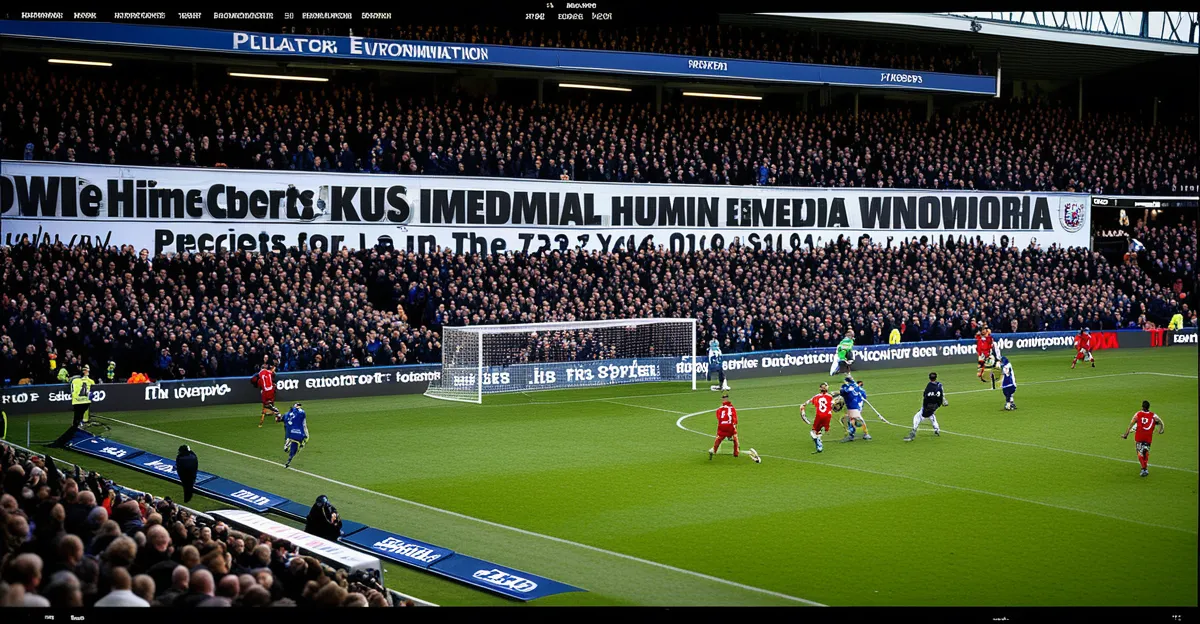The Role of UK Sports Media in Shaping Public Opinion
UK sports media plays a pivotal role in molding public perception and shaping audience attitudes toward athletes, teams, and sporting events. It holds considerable sway due to its widespread reach across television, print, and online platforms. This media influences opinion not only by reporting outcomes but by framing narratives that guide how stories are understood.
One primary mechanism of media influence is framing, where certain aspects of a story are emphasized to shape interpretation. For example, highlighting an athlete’s personal struggles can foster sympathy, while focusing on controversies might provoke criticism. Another is agenda-setting, which determines the topics that receive public attention. By prioritizing certain matches or issues, UK sports media effectively sets the national conversation around sports.
In the same genre : How Can UK Athletes Gain a Competitive Edge in International Sports Competitions?
Additionally, representation matters greatly. How teams and players are portrayed—whether through images, language, or commentary—impacts societal viewpoints. This is especially critical in a diverse UK where sport acts as a cultural touchstone.
Overall, UK sports media is deeply embedded in society, influencing not only fans’ enjoyment but also broader social attitudes and identities tied to sporting culture. Its power to frame events and focus public discourse demonstrates why critical engagement with its content remains vital.
Also to discover : How Can UK Sports Foster Young Talents to Achieve International Success?
Media Portrayals and Their Impact on Stereotypes
Sports media narratives profoundly affect representation and contribute to the shaping of stereotypes in the UK. When UK sports media consistently frames athletes and teams through particular lenses, it influences not only audience attitudes but also entrenches societal biases. For example, portrayals often reinforce gender stereotypes by emphasizing physicality and aggression in male athletes, while focusing on appearance or personal life when covering female athletes. This selective framing validates outdated views and limits the diversity of athletic identities presented to the public.
Racial and regional stereotypes also emerge from repetitive media tropes. UK sports media sometimes highlights players’ ethnic backgrounds in ways that frame their success as exceptional or “other,” which can inadvertently exoticize or marginalize them. Similarly, regional representation often leans on cliched characterizations—Northern teams might be portrayed as gritty but unsophisticated, whereas Southern teams receive narratives of prestige and professionalism. Such media narratives subtly shape public perception, reinforcing divisive stereotypes.
Notable controversies have arisen when UK sports media’s representation fails to reflect diversity adequately or perpetuates harmful biases. These incidents trigger public criticism and debate about the responsibility of media outlets to promote accurate, inclusive portrayals. Addressing these issues demands critical awareness from both producers and consumers of sports media, underscoring the medium’s power to either challenge or entrench prevailing stereotypes and attitudes.
Influential Case Studies and Public Reactions
Examining media case studies from notable UK sports events reveals the tangible effects of media coverage impact on public opinion. Take, for example, the 2019 Rugby World Cup, where extensive UK sports media attention focused not only on the game outcomes but also on players’ conduct and team dynamics. This in-depth coverage shifted audience attitudes, with a surge in national pride and increased engagement in rugby discussions online and offline. The framing of English players as resilient and disciplined enhanced positive public perception, demonstrating the power of storytelling in sports media.
Similarly, media narratives around the 2021 UEFA European Championship showcased how portrayals influence societal discourse. The intense focus on individual athletes’ backgrounds and performances shaped fan sentiment and national identity debates. Following high-profile stories of racial abuse toward players, media outlets highlighted solidarity and calls for inclusion, contributing to wider conversations on diversity in sports. This example illustrates how media case studies can spur both emotional responses and reflective dialogue.
Academic studies corroborate these observations. Research analyzing media reactions to UK sports events shows patterns where coverage selectively emphasizes certain themes—such as heroism or controversy—impacting collective perceptions. Experts note that such emphasis can trigger lasting shifts in how teams and athletes are viewed, often extending beyond the sporting context into cultural identity.
These case studies underscore the crucial role of UK sports media not merely in reporting events but in actively shaping audience attitudes and national conversations through strategic framing and agenda-setting.
Data and Expert Opinions on Media Effects
UK sports media’s influence on public perception and audience attitudes is well-documented through extensive academic research and expert analysis. Studies consistently reveal that media narratives significantly shape how the public understands athletes, teams, and sporting events. Research using survey data highlights that framing and agenda-setting by UK sports media lead to measurable shifts in opinions and engagement levels among diverse demographics. For instance, exposure to particular media portrayals correlates strongly with altered perceptions of athlete behavior and team identity.
Experts in media studies emphasize that the interaction between media content and audience interpretation is complex yet impactful. They argue that UK sports media does not merely report events but constructs realities through selective emphasis and representation choices. Media impact studies often use longitudinal data to demonstrate how repeated narratives can entrench stereotypes or foster new social attitudes over time. This evidence underscores the necessity of critical media literacy among consumers to discern framing effects.
Furthermore, survey findings from recent media impact studies illustrate clear trends: audiences’ trust and interest in sports can fluctuate based on coverage tone and focus. For example, media highlighting positive athlete stories tends to boost fan enthusiasm, while sensationalist coverage may provoke skepticism or controversy. Industry experts therefore advocate for balanced reporting to support informed and fair public dialogue around sports.
In summary, academic research and expert opinions jointly confirm that UK sports media wields substantial influence. Its power to direct public discourse and affect audience attitudes through persistent framing, agenda-setting, and representation reinforces the critical role of media both in reflecting and shaping societal views about sports.
Controversies and Critiques of UK Sports Media
UK sports media frequently faces media criticism due to perceived lapses in media ethics and accountability in its coverage. A common critique centers on sensationalism, where outlets prioritize controversy or scandal over balanced reporting, often exacerbating conflicts and distorting public perception. This approach can erode trust among audiences and foster cynicism toward sport narratives.
Ethical dilemmas arise particularly around issues such as privacy invasion, biased reporting, and the reinforcement of harmful stereotypes. For example, aggressive reporting on athletes’ personal lives sometimes crosses into unwarranted intrusion, prompting backlash from both the public and the sports community. Criticism also targets uneven representation that neglects diversity or disproportionately highlights negative aspects of certain groups, undermining fair portrayal.
High-profile cases illustrate these challenges. Media coverage that amplified racial or gender biases sparked debates about sports journalism accountability and the responsibility of editors and commentators to uphold ethical standards. Public outcry in such instances has led some media organizations to revise guidelines and improve sensitivity training, though critics argue that systemic change remains slow.
Ongoing discussions focus on enhancing transparency and fostering greater dialogue between media producers and consumers. Advocates call for stronger adherence to ethical codes, promoting fair, accurate, and respectful sports journalism that supports informed audience attitudes. By addressing these controversies head-on, UK sports media can better serve its influential role in shaping societal views while maintaining credibility and trust.








